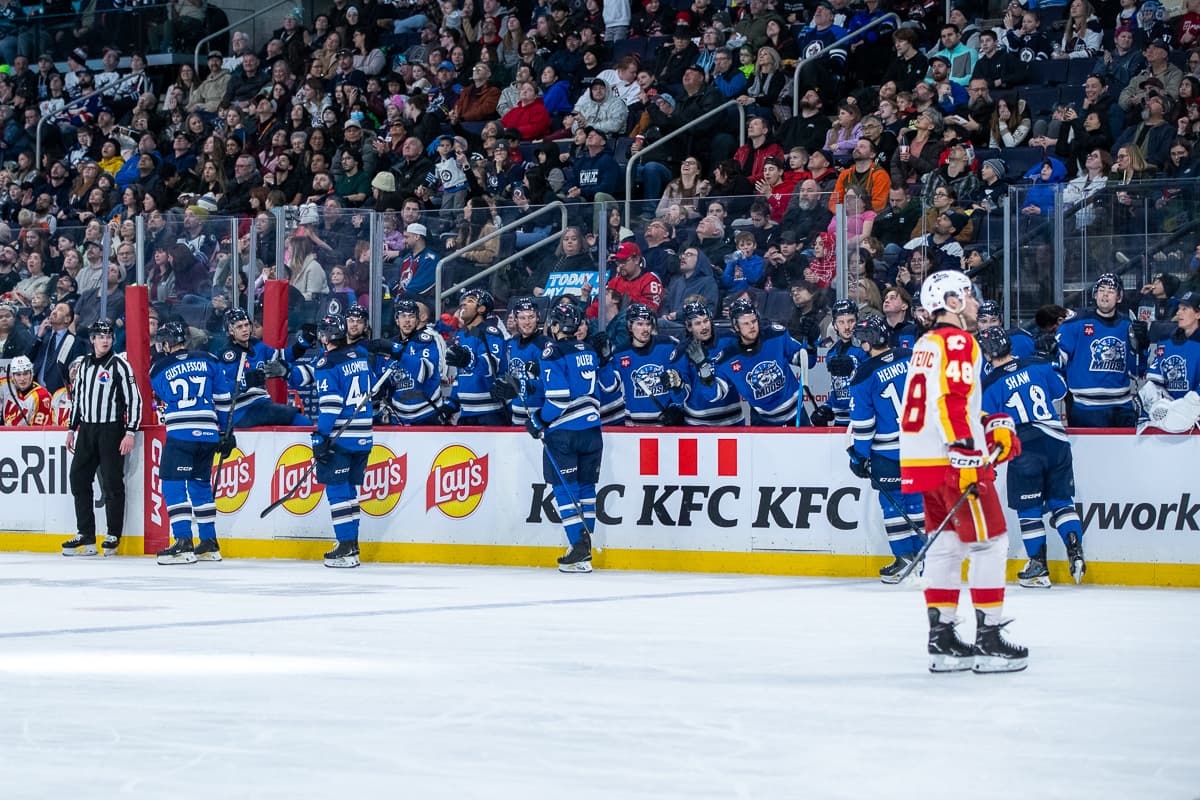Byron Penstock is certainly not your normal hockey player. Consider this. He put his hockey career on the shelf midway through his first pro contract because he was concerned that he didn’t have enough education for life after hockey. He finished top of his class in his first year at York University’s Osgoode Hall Law School. After graduation he took an associate’s position at one of the biggest law firms, not just in New York, but in the entire United States.
From there, thanks to a chance encounter with a $1 book in a used book store, it was on to Harvard Business School. Today he researches and manages investments for Scharf Investments a company boasting $5 billion in assets under management.
His hockey career started like a lot of others -- Saskatchewan farm boy falls in love with the game at a very early age and, as he grows, pursues his passion at higher and higher levels.
“From the minute I started watching hockey as a five-year old, you don’t know any better and you just assume you will play in the NHL,” Penstock admitted.
He played his youth hockey near home, in Regina and Estevan, and at 15 he went to Athol Murray College of Notre Dame in Wilcox, Sask. There he soon caught the eye of Kelly McCrimmon of the Brandon Wheat Kings and in 1990, as a 16-year-old, joined the Western Hockey League team.

As rewarding and exciting as that may have been, it also opened the door to one of the harsher realities of life as a hockey player. Penstock was traded from Brandon in 1991, ending up with the Tri-City Americans in Kennewick, Washington.
“You grow up quickly when you play in the Western Hockey League,” he said. “You don’t have the luxury of staying at home and getting a traditional upbringing. You don’t know any differently, that’s the life you’re a part of. There are a lot more positives than negatives.”
Byron and the Wheat Kings were reunited a year later by another trade and he played out his junior hockey eligibility in Brandon, capped by a trip to the Memorial Cup Championship in 1995.
After his junior career ended he signed a free agent contract with the Anaheim Mighty Ducks and his hockey career continued its upward path with an assignment to the Baltimore Bandits of the American Hockey League.
But the 22-year-old netminder had been a lot busier than his hockey statistics showed. He was well down the road to a career move that was anything but typical of young hockey pros.
“From a very young age I wanted to build a career for myself after hockey,” he said. “My thinking was that I would be successful in hockey, make a lot of money, and then have 40 or 50 years to go do something else. That’s the beauty of being a professional athlete -- you can be very successful and still be young enough to go do something else.”
Penstock, now 44, admits that as he got older and became more realistic about his hockey career, he viewed his after-hockey life as his “Plan B.” Given Byron’s personal outlook, the focus on the longer term is more the norm than it is a sudden realization.
“The one thing I’ve always had is the ability to think very long term,” he said. “And if you think long term, I don’t know how you can’t take steps to prepare for life after hockey, whether that happens at 19 or 39.”
The lack of that kind of thinking shocked Byron when he first encountered it among his hockey brethren. But then he never did see an either-or fork in the road when it came to hockey and education.
“When I was 15, I had a decision to make,” he said. “Was I going to play in the Western Hockey League and really pursue hockey or go the college route and make sure I got an education? That’s a big decision for a 15-year-old to make. But I never really saw it as a choice. I really felt like I could play in the Western League and still get a good education and still be successful outside of hockey.”

That kind of determination, focus and passion keeps popping up as Penstock tells his story. He says he has always been attracted to stories about successful people.
“My big thing growing up was reading biographies,” he said. “I would find people I perceived to be successful and read about them. Find success and study it. While I was in law school I came across this book called Buffet: The Making of an American Capitalist. I had no idea who Warren Buffet was but he looked like a pretty important person. So I bought the book for a dollar at a used book store. I guess I was a value investor at heart from a young age.”
Byron says he has read a lot of books about success and successful people but as soon as he read the Buffet book he knew he had found what he wanted to do with his life. Even while in law school, he read everything about investing that he could get his hands on. Over the next two years, while working as a lawyer, he was also preparing for his next step. That step took him to Harvard Business School and ultimately into professional money management and the career he has today.
With the career and potentially life altering events of the WHL Bantam Draft and the National Hockey League Entry Draft still fresh in our collective hockey memory, Byron has some advice to offer hockey hopefuls who may be facing some of the big decisions he encountered.
“To be able to pursue even the potential of a hockey career is very exciting,” he said. “Absolutely do everything you can to make the most of that opportunity. But that is not mutually exclusive with developing yourself as a human in other ways that will benefit you the rest of your life. The more knowledge you can acquire at a young age, the more skills you can acquire, the more relationships you can build, the more you will benefit the rest of your life.”
As someone who has been there and done that, Penstock says it is important to enjoy the experience as much as you can.
“Really appreciate how great an experience it is to play in the Western League or play pro,” he said. “You’ll have a lot of great experiences after that, but you will always look back on that time of your life and say it was better than any other time.”












Comments